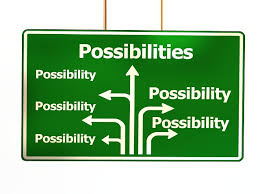
The decision to attend college is a big one. Getting a college degree takes time: at least four years for most people. Getting a college degree also costs money: tens of thousands of dollars for most people. You might be asking yourself, “Is it worth it? Should I go to college?”
In this article, I’ll explain the benefits of going to college and detail some of the potential drawbacks. Furthermore, I’ll give you all the information you need to decide whether or not you should pursue a college degree.
4 Major Benefits of Going to College
Going to college can make you richer, happier, and healthier—sounds good to me! Here, we take a look at the four biggest benefits of attending college.
#1: There Are Many Financial and Career Benefits
Let’s start by considering the financial advantages of a college education.
College graduates with a bachelor’s degree earn about $32,000 more per year than those with a high school diploma or its equivalent.
Here’s one of the most cited statistics that shows the benefits of a college education: a person with a bachelor’s degree will, on average, earn almost $1 million more over the course of her lifetime than somebody with just a high school diploma. While money shouldn’t necessarily be the biggest priority in anyone’s life, there’s no doubt that a higher salary will give you more opportunities, alleviate stress, and allow you to more easily support a family.
Moreover, college-educated Millennials have much lower unemployment and poverty rates. According to recent studies from 2020 to 2021 by the New York Federal Reserve Bank, young people aged 22-27 are more likely to be unemployed if they don’t have a college degree. Unemployment among those with a college degree was 3.9%, but it was 10.3% for those without a degree.
In addition, those who attended college are more likely to get married and less likely to be living in their parents’ homes. Statistics indicate that attending college has more economic benefits for Millennials than it did for previous generations. Going to college might be more important now than ever before!
Finally, a college degree is required for many entry-level jobs. According to a study done by the Georgetown Public Policy Institute, 65% of jobs now require postsecondary education and training beyond high school, and 35% of jobs require at least a bachelor’s degree.

As you can see, there are tons of financial benefits to getting a bachelor’s degree. But what about the professional advantages?
In college, you can make connections that will help you land a good job after you graduate. Experts estimate that 70%-80% of jobs aren’t advertised publicly. Often, you simply have to know the right people to secure employment.
Many companies also offer internship programs to college students that can lead to full-time employment after you graduate.
Furthermore, most colleges offer free career counseling and can put you in touch with employers and alumni who can help you find a job. Colleges will often have job fairs as well, where recruiters come to campus looking for qualified students to work for their companies. These fairs give you an opportunity to form relationships with company representatives who can assist you professionally.
Lastly, many of your peers will probably go on to professional success. Your college friends might one day be able to offer you a job, refer you for a job, or make a lucrative business deal with you. As a college student, you’ll (likely) be surrounded by many motivated, talented people who, in the future, will want to work with those they know and trust—and this could very well include you.
#2: You Get to Explore Your Interests
College opens up a whole new world to you academically. In high school, you generally only have a choice of a handful of elective classes, but in college you can literally choose from among hundreds of classes and majors.
While there are core requirements at most colleges, for the most part, you can decide what you want to study and take classes in subjects you want to learn more about. Many students are able to spark academic passions in college.
You could take classes in anthropology, psychology, sociology, microbiology, or osteology. Many college grads have several friends and former students who were inspired by college classes that positively changed the course of their academic and professional lives.
Also, while in college, you’ll have the chance to pursue tons of extracurriculars and opportunities you might not otherwise have done. These activities can become lifelong passions, help you form meaningful relationships, and even prepare you for a future job.
For example, you could write for the campus newspaper, or you could be a DJ for the school radio station. You could dance for a hip-hop group, or join a campus organization that provides tutoring to underprivileged kids. You could help build houses for those in need. You could work on political campaigns or join groups that advocate for various social issues. The choice is yours!

Howard Stern started his career working at the radio station at Boston University.
#3: You’ll Have Fun and Make Friends
Many students enjoy their college experience. Too often people discount the importance of fun when it comes to education, and for some people, their best memories and most fun times are from their college years. On a college campus, you can attend parties, plays, sporting events, and concerts; you can also create your own random fun with your peers.
Most schools bring exciting events and speakers to their campuses, too. Colleges will often host famous musicians and comedians. For example, The Weeknd has performed shows at Syracuse, Northeastern, Lafayette College, and the University of Minnesota, while Drake has performed at numerous colleges, including Howard, SUNY Purchase, and the University of Kentucky.
Colleges will also sponsor parties and other on-campus events that are just meant to be fun and facilitate social interaction. At Stanford, there’s a tradition known as Full Moon on the Quad. On the first full moon of the school year, students gather in the quad, and the seniors welcome the freshmen by kissing them. There’s a lot of kissing. It might not be hygienic, but it’s memorable.
You may make very close friends while you’re attending college. In college, you get to befriend people from all over the US and even other countries. A big part of the college experience is having the opportunity to learn from and interact with people from diverse backgrounds.
Overall, you have the chance to study, live, party, and participate in extracurricular activities with your peers. There will probably be no other time in your life when you get to spend as much time with your friends, and the amount of quality time you get to spend with them will form the foundation for meaningful lifelong friendships.
#4: It Gives You Space for Self-Improvement
For many students, college is the first time in their lives they’re not living at home. During college, they learn to be self-sufficient. They learn domestic skills and budgeting—even how to motivate themselves without parental encouragement. At the same time, most college students can still go home or call home if they’re in need of some money or advice.
Many people who don’t go to college remain at home for at least a couple of years after high school. Though they often have more freedom than they did during high school, their routines and mindsets don’t change nearly as drastically as those who went to college. Anecdotally at least, even students who live at home and commute to college experience more growth than those who bypass college.
Whether you go to an in-state or out-of-state school, your college will likely expose you to a new city and environment. For instance, if you grew up in California and went to Stanford, it could still be a six-hour drive from where your family lived. You would be able to experience life in Northern California and the San Francisco Bay Area, which has a different vibe, culture, and climate from, say, Los Angeles. Many college students are grateful to be able to have the opportunity to live in a different environment.
Furthermore, most colleges have study abroad programs that can give you a chance to take classes in countries around the world. At Emerson College, you can spend a semester in a 14th-century medieval castle in The Netherlands. At the University of Chicago, you can study abroad in Paris, Beijing, Barcelona, Berlin, Kyoto, Bologna, Cairo, Istanbul, Jerusalem, Edinburgh, Hong Kong, London, Oaxaca, Vienna, Milan, and a few other places, too. You can learn about the world by traveling and studying in countries around the world.
Finally, people who go to college tend to be healthier. According to a report from the National Academy of Sciences, people with a bachelor’s degree live longer than people without one. They’re also less likely to smoke and more likely to exercise.
Similarly, according to a study published by the American Journal of Public Health, people who get a bachelor’s degree after 25 years of age exhibit fewer depressive symptoms and have better self-rated health at midlife.
The majority of college applicants are high school seniors, and most of the college application advice out there is aimed at them. But what do you do if you don’t fall into this narrow category? Our eBook on how to prepare for and apply to college as a nontraditional student will walk you through everything you need to know, from the coursework you should have under your belt to how to get letters of recommendation when you’re not a high school senior.


3 Possible Disadvantages of Attending College
Even though attending college can offer you many benefits, there are potential drawbacks.
Note that you only get many of the benefits of going to college if you’re able to graduate. A 2021 Forbes article reported that, six years after enrolling in college, less than 60% of students had graduated with a bachelor’s degree.
Now, let’s take a look at the three biggest cons of attending college.
#1: There’s the Risk of High Costs and Potential Debt
College is really, really expensive, with costs continuing to rise, and many college graduates are burdened with astronomical student loan debt.
The College Board estimates that the average cost of attendance for an in-state public college for 2021-2022 is $10,740, while the cost of attendance for a private college averages $38,070. Remember, though, that most students receive financial aid that covers at least part of the cost of attendance if they demonstrate financial need.
Unfortunately, many students don’t receive the aid they need to fully cover the costs. As a result, they take on unsubsidized student loans to finance their college education. Sadly, student loan debt increased from $260 billion in 2004 to $1.7 trillion in 2021. Average student loan debt in 2021 was $38,147—that’s a pretty staggering amount.
Overall, student loan debt can dramatically impact your life after your graduate. It can affect the jobs you take and cause you to delay buying a house or starting a family.
#2: The Financial Benefits of College Might Be Overstated
The claim that college graduates earn $1 million more in their lifetimes might actually be skewed by graduates from top universities.
A 2021 study by PayScale.com found that there are only seven schools (out of 1,878 four-year schools) at which earning a college degree can get you a $1 million return on investment. Basically, the reported number that college graduates make $1 million more over the course of their professional lives is not that accurate.
Moreover, it’s important to note that while attending college, most people aren’t working or are only working part-time. So in addition to the financial costs and debts you’re incurring while in college, you probably won’t be able to get the salary you could be making from working a full-time job during the four to six years you’re in school.

#3: College Might Not Actually Make You Smarter
The last con of attending college is that going to one might not actually increase your intelligence.
A 2011 study found that 45% of 2,322 traditional-aged college students studied from 2005 to 2009 made no significant improvement in their critical thinking, reasoning, or writing skills during the first two years of college. After four years, 36% showed no significant gains.
More recent studies have shown similar trends among those with either some college or a degree. Given the cost of attending college, you’d hope that higher education would have a dramatically positive effect on these skills for all students—but this might not actually be the case.
Should I Go to College? How to Make the Right Choice for You
Admittedly, we might be somewhat biased because we’ve spent years stressing the importance of attending college to high school students. However, we do recognize that college might not be for everyone.
Other than the pros and cons of college we mentioned previously, here are some additional factors to consider when deciding whether or not to attend college.
You’ll Have More Options With a College Degree
You might be planning to enter a trade that doesn’t require a college degree and will provide you with a good salary and benefits. However, if you end up deciding that you don’t like that field after a few years and you don’t have a college degree, your employment options will be limited.
Also, if you take up a trade that requires physical labor and you suffer an injury, you might struggle to find work without a college degree.

There Are Ways to Pay for College
You might be turned off by college because of how much you think it will cost you. But remember that you might not know your out-of-pocket expenses until you get accepted to college and get a financial aid package.
In reality, there are many grants and scholarships that can alleviate the financial burden and make college more affordable for you.
You Might Not Need College If You’re Already Successful
If you’re one of those rare people who has already achieved tremendous professional success before attending college, then going to college might not benefit you much financially.
For instance, say you get drafted in the first round of the draft by Major League Baseball and are offered a multi-million dollar signing bonus. Nobody would fault you for bypassing college. After all, you can always take college classes in the off-season or get your degree when you’re done with your playing career.
If you’re a mini Mark Zuckerberg or starring in your own sitcom, going to college might not lead to a higher income or a better job after you graduate. Bill Gates and Miley Cyrus were able to do OK professionally without college degrees!
You Might Not Be Academically Inclined
Most people are capable of doing college-level work if they’re motivated and apply themselves. That being said, some people just detest school or don’t have the aptitude to do well in a college environment.
Keep in mind, though, that college gives you so much more freedom than high school to explore your academic interests and find the fields in which you can excel. Similarly, if there’s a subject that confuses you and that you absolutely abhor, you can probably avoid taking classes in it in college.

wecometolearn/Flickr
Conclusion: Should You Go to College or Not?
There’s no denying that college offers many financial, professional, and personal benefits. Numerous studies have shown that college graduates have far better financial and job prospects than those who don’t attend college. What’s more, few people regret going to college despite the tremendous amount of student debt and the less-than-ideal economy.
If you’re worried about the cost of attendance, make sure you know about financial aid and how to limit your debt when you graduate. College is an investment that pays off for the vast majority of people who graduate.
Admittedly, some people don’t need college to achieve their personal or professional goals. While you can of course be successful without a college degree, college graduates tend to fare better. If you’re considering college, make the decision that will benefit you the most now and in the future.
What’s Next?
Decided you want to go to college? Then take the first step and find out how to apply.
If you don’t think you’ll be able to get into college, check out these open admission colleges and these colleges with the highest acceptance rates.
If you still need to take the SAT or ACT for college, take a look at our ultimate SAT study guide and ultimate ACT study guide to learn more about the tests and what you’ll need to know to ace them.
Want to improve your SAT score by 160 points or your ACT score by 4 points? We’ve written a guide for each test about the top 5 strategies you must be using to have a shot at improving your score. Download it for free now:


Source: blog.prepscholar.com